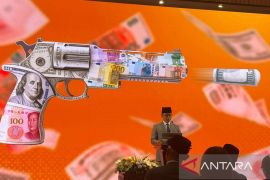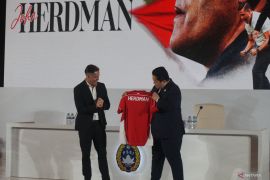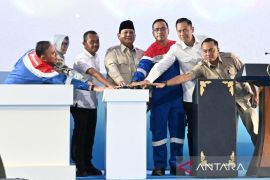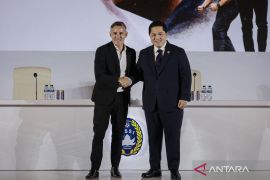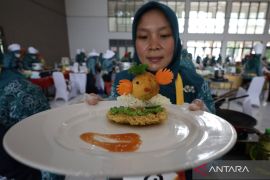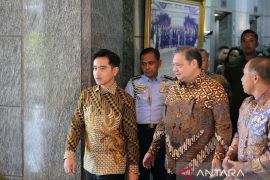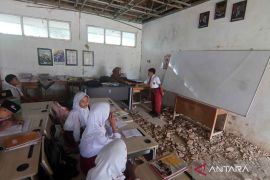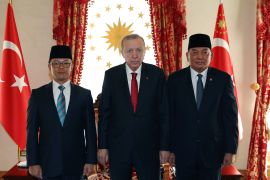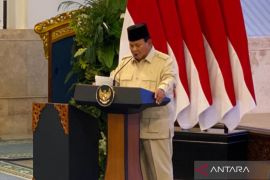"It will take 30 months to finish it," the president director of Petrogres, Hidayat Nyakman, said here on Wednesday.
He said the plant`s construction was expected to finish in 2014 to reduce the country`s dependence on imported NPK fertilizer raw materials.
He made the statement after witnessing the signing of a contract between PT Petro Jordan Abadi and a consortium of PT Rekayasa Industri-Wuhan Engineering Co.Ltd. for the construction of a phosphoric acid and its derivatives plant in Gresik, East Java.
He said Petrogres and Jordan Phosphate Mines Co. Ltd. (JPMC) had set up a joint venture company, PT Petro Jordan Abadi, with each holding 50 percent of the shares in the company.
He said the construction of the plant would cost around US$184.3 million and around 70 percent of it or US$129 million was from a loan from the consortium between Bank Mandiri and Indonesia`s export-import bank. The rest totaling US$55.3 million comes Petrogres and JPMC.
"The plant is very strategic to assure fertilizer raw material namely phosphate," he said.
He said Petrogres has so far imported around 400,000 tons of phosphoric acid a year mostly from Jordan.
Actually Petrogres has already had a phosphoric acid factory with a production capacity of 200,000 tons a year with its raw material imported from Jordan and Egypt.
"We need around 600,000 tons of phosphoric acid for producing around 2.2 million tons of NPK Phonska," he said.
To reduce dependency on imports he said Petrogres had invited JPMC as Jordan`s biggest producer of phosphoric acid to jointly build a plant in Indonesia.
"Stocks of phosphoric acid and rock phosphate in the world are limited and the price keeps rising," he said.
The world`s biggest rock phosphate producers so far are Morocco, Jordan, Egypt and Tunisia.
He said the price of phosphoric acid in the world at present reached US$1,100 per ton and the price of rock phosphate US$220 per ton.
"We are lucky we have a year-long contract with JPMC so that we could still enjoy the price of rock phosphate at US$160 per ton," he said.
The chief commissioner and CEO of JPMC, Walid Ismail Kudri meanwhile said his company has been cooperating with Petrogres as supplier of rock phosphate and phosphoric acid since 1985.
He has seen Indonesia as a big phosphate market because of its high demand. "Indonesia is a big market with its economy continuing to rise," he said.
In view of that he said besides cooperating with Petrogres in the development of a phosphoric acid plant, JPMC also plans to build a similar plant in Kalimantan and Makassar in cooperation with fertilizer companies PT Pupuk Kalimantan Timur and PT Pupuk Sriwijaya.
"We will build two more plants after this one," he said.
PT Petro Jordan Abadi, Muhammad Chadik Anis, meanwhile said the joint venture plant would not only produce phosphoric acid but also sulfuric acid totaling 600,000 tons and gypsum granule totaling 500,000 tons a year.
"The sulfuric acid produced by the new company will be totally supplied to Petrogres," he said.
Anis said he estimated the sales turnover later would reach up to Rp2 trillion excluding sales of sulfuric acid and gypsum for cement producers.
Hidayat said he plans to increase the capacity of his company`s sulfuric acid production capacity next year to reach around 300,000 tons a year.
"Next year we will conduct `repumping` in the existing sulfuric acid plant so that its production capacity will rise from 200,000 tons to 300,000 tons," he said.
He did not tell the total investment Petrogres would make for increasing the plant`s production capacity.(*)
(H-YH/HAJM/a014)
Editor: Ruslan Burhani
Copyright © ANTARA 2011
